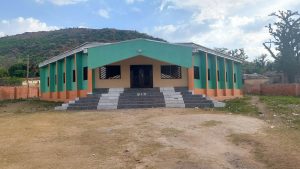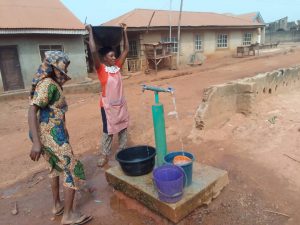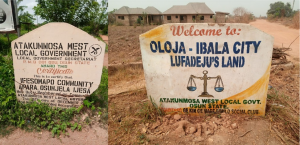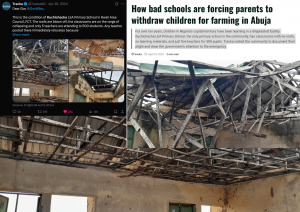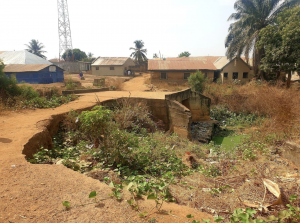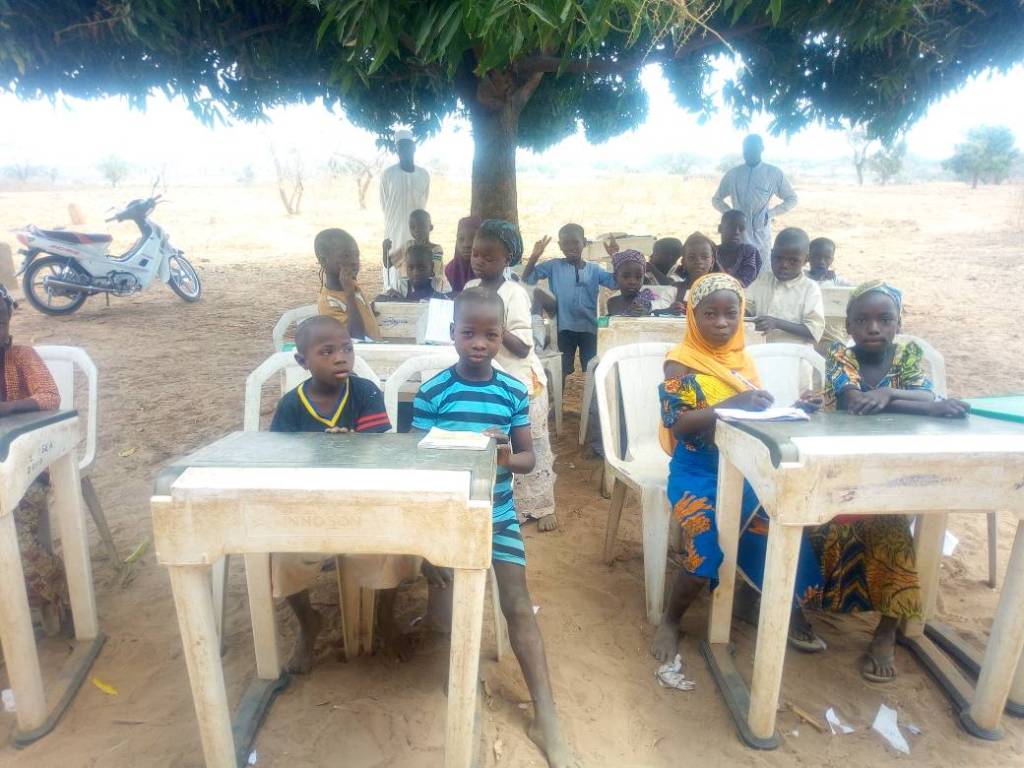
Pupils sitting under the tree
Kpotun Woro, a community of 4,000 people in Agaie Local Government Area, is about 140 kilometres away from Minna, the capital city of Niger State. Kpotun Woro Primary School is the only primary school in the community. The school which has 160 students is made up of only a block of three classrooms which was built by the Niger State Universal Basic Education Board (NSUBEB) in October, 2017.
One of the three classrooms has been converted to an office and staff room, leaving only two classrooms for Primary 1-6 students to learn. The implication is seen once you enter the school compound: many students are cramped in the classrooms, many more students are sitting on the bare ground under mango trees. Some students come to school with sacks, and place them on the floor before sitting on the ground.
The head teacher was displeased with the state of the school.
“When the sun is so intense, pupils are advised to go home and now that raining season is approaching, it will be worse if the shelter is not provided,” he said.
A recent advocacy visit to the community by TRACKA, a group of active citizens monitoring the implementation of government projects to ensure service delivery, showed that the community was ignorant of a budget provision to build and furnish another block of classrooms for the school.

The information in the 2017 Budget read: CONSTRUCTION AND FURNISHING OF 1 BLOCK OF 3 CLASSROOMS WITH OFFICE IN KPOTUN WORO PRIMARY SCHOOL, AGAIE LGA, NIGER SOUTH SENATORIAL DISTRICT, NIGER STATE. Senator Sani Mohammed is the senate representative of the area which is under the Niger South Senatorial District and 12 million Naira was allocated for the project.
“We are not aware of the said project. We are just hearing of it for the first time a block of three classrooms with office was allocated to the community” the headmaster of the school said, confusion written on his face.
To provide written evidence, the Tracka team shared printed copies of the 2017 FG Budget to residents of Kpotun Woro community and encouraged them to follow up on projects in the community and demand for accountability from their representatives.
Satisfied with the sensitization programme, the residents promised intensive follow-up to ensure implementation of the project.
On June 4, 2018, we wrote an Freedom of Information (FoI) letter to the Ministry of Education to Inquire about the implementation status of the project. As we await the ministry’s response, nothing has changed for the students of Kpotun Woro Primary School: some still learn, sitting cramped in classrooms, while others learn under the tree.

However, to improve the quality of life in Kpotun Woro, the community needs more than a good primary school. The community also lacks potable water and healthcare facilities, making them susceptible to diseases, and making quality healthcare difficult to access.

